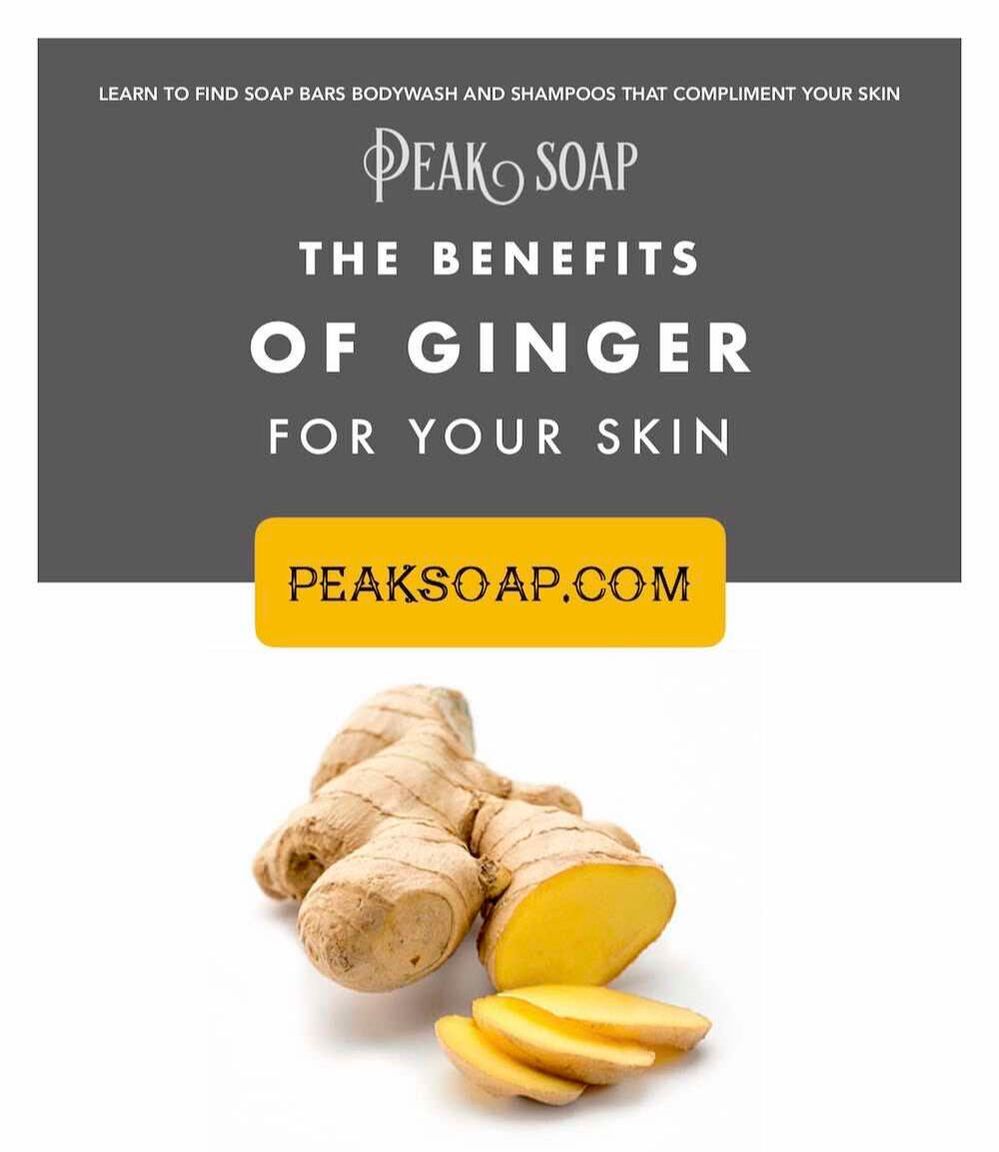The Benefits of Ginger For Skin | PEAK SOAPBy Michael Holloway MSc, BSc - Updated 10.11.2023 The History of The Ginger RootGinger is a member of a large plant family that includes the spices cardamom and turmeric. Ginger does not grow in the wild and its actual origins are still uncertain. The Indians and the Chinese are believed to have produced ginger as a tonic root for over 5000 years to treat sickness and medical conditions. Ginger is now cultivated throughout the humid tropics, with India still being the largest producer in the world. Ginger has been used as a flavouring and medicine for thousands of years. It was exported from India to the Roman Empire 2000 years ago. Ginger continued to be a highly sought after commodity in Europe even after the fall of the Roman Empire. Arabian merchants controlled trade in ginger and other spices for centuries. In the 13th and 14th centuries, the value of a pound of ginger was equivalent to that of a sheep. 1. The Benefits of Ginger For BreathingGinger not only smells great but also has benefits for your overall health and well being. Ginger oil triggers bronchodilation which dilates bronchi and bronchioles and improves airflow to the lungs. This simple action stimulates the beta-adrenergic receptor which improves breathing in people with chronic respiratory disease. The most common use of ginger is to alleviate the vomiting and nausea associated with pregnancy, surgery, and some types of cancer treatment. 2. The Benefits of Ginger In The DietGinger is a very popular dietary supplement and superfood. It is used for flavouring and has been used as a herbal remedy for thousands of years. Ginger root contains very high level of antioxidants, surpassed only by pomegranate and some types of berries. During the medieval period in England, it was imported in its preserved form to be used in sweets. Queen Elizabeth I of England is credited with apparently inventing the gingerbread man! 3. The Benefits of Ginger For Skin InflammationOne of the many health claims attributed to ginger is its purported ability to decrease inflammation, swelling and pain. Gingero, a dried ginger extract, and a dried gingerol-enriched extract have been used to promote analgesic and potent anti-inflammatory effects in patients with breathing problems. Ginger oil has been reported to reduce the production of proinflammatory compounds released during respiratory infections in vitro. 4. Ginger As a Skin AntioxidantThe presence of oxidative stress is associated with numerous diseases. Ginger root is a great way to detox skin. Low doses of ginger and lemon oil have been shown to prevent lipid peroxidation of the membranes and the premature destruction (hemolysis) of red blood cells in mice. Researchers have also discovered that ginger and lemon essential oil prevent lipid peroxidation of the brain and liver. SUPPLEMENT | Reported Therapeutic EffectsAnalgesic (pain relief), bronchodilator, anticancer, anti-inflammatory, antispasmodic, antineuralgic, antibacterial, antioxidant, antiseptic, aphrodisiac, astringent, expels excess gas, relieves menstrual cramps, eases nausea and vomiting, aids normal respiration, aids digestion, diuretic, expectorant, relieves constipation and diarrhea, eases sports injuries, aids circulation, stimulating, promotes courage and motivation, encourages feelings of balance and stability, reduces mental fatigue.
3 Comments
|
Peak Soap
The Original Bakewell Soap Co.
Contact : [email protected] | Copyright 2023 © P e a k S o a p Ltd.
P e a k S o a p™ Ltd. is registered in the United Kingdom | Office : Diamond House, Water Street, Bakewell, DE45 1EW | Company No. 11684582
P e a k S o a p™ Ltd. is registered in the United Kingdom | Office : Diamond House, Water Street, Bakewell, DE45 1EW | Company No. 11684582

